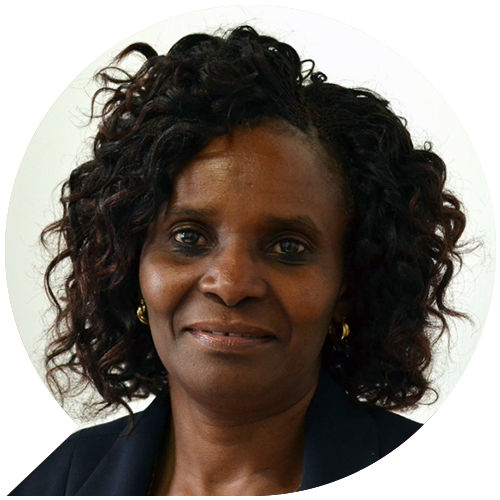For the publication of DSW’s 2017 Annual Report, we wanted to profile some of the new faces that have started work at the organisation in the last year! Introducing Evelyn Samba, Country Director for DSW Kenya!
Knowing that you were joining an SRHR advocacy organisation, what were your hopes?
My hopes were that DSW would be a bold, trendsetter, fearless and daring institution that is able to champion an agenda that is sensitive. In many aspects I hoped that in undertaking advocacy for SRHR, DSW would champion SRHR from a human rights perspective and that young people would be leading the change they seek.
There is a lot of public discomfort around this topic and among some communities, it is almost taboo therefore Family Planning and Reproductive Health is a topic not openly discussed. I therefore came into this organisation with a lot of expectation that I would be at the helm of an institution that is making inroads into a path that is not commonly trod, that I would be required to be bold in pushing barriers and destabilizing the very beliefs that continue to make it impossible for young people to access critical information necessary for their empowerment and to allow them to enjoy their human rights.
I therefore expected that being at the helm of this institution I would challenge systems and practices that impede development, shift the national conversations from health as a development issue to a rights issue and that I would be part of a team that speaks boldly against violations of reproductive health.
What type of organisation (area of work) did you join DSW from?
I joined DSW from a National Human Rights Institution (NHRI) concerned with promotion and protection of human rights. Because of its mandate, the Kenya National Commission on Human rights works as a watchdog, speaking against human rights violations (protection mandate) and also serves as an advisor to government on matters of human rights (promotion mandate). For this reason, the Commission concerns itself with advocacy for human rights respect, which entails education and knowledge building of human rights among the public but also documenting evidence of rights violations to serve as evidence for advocacy.
What are some of the challenges you expected to come across and which one have actually materialized
I expected to encounter limited knowledge and acceptance of adolescent reproductive health and rights among the public, resistance of, and negative attitudes towards young peoples’ access to reproductive health and services and backlash/blame on availability of Reproductive Health information on the perceived increase in teenage pregnancies. I also expected to find disconnect between adolescent sexuality real needs and availability of Family planning information and services.
Many of these have materialized as myths and misconceptions around adolescent sexuality, cultural and religious beliefs and practices that continue to hinder young peoples’ access to SRH information and services as they are caught in between- this misconception web.
Going forward, what is your outlook vis-a-vis the work that DSW does?
A number of International treaties and covenants including the ICESCR, CEDAW and BPfA guarantee the right to the highest attainable standard of health, including reproductive health. In Kenya these rights are guaranteed in article 43 of the Constitution. DSW’s work must be grounded on human rights principles and standards.
Young people form the largest single category of our population and for us to realise and secure developmental milestones, all efforts must be made to ensure the full participation of young people in all spheres; push for affirmative action to level the playing field where need be as must happen when dealing with adolescent girls; and that our efforts must confront patriarchy which continues to be the bedrock upon which rights violations continues to thrive.
In ensuring that young people gain access to information on their sexuality, DSW Kenya country office can anchor its work on the provisions of Article 35 of the Constitution on the right information which states that every person has a right of access to information held by another person and is required for the exercise or protection of any right or fundamental freedom. This will strengthen our advocacy and campaigns in ensuring that SRH information is not denied on the pretext of culture and religious beliefs.

